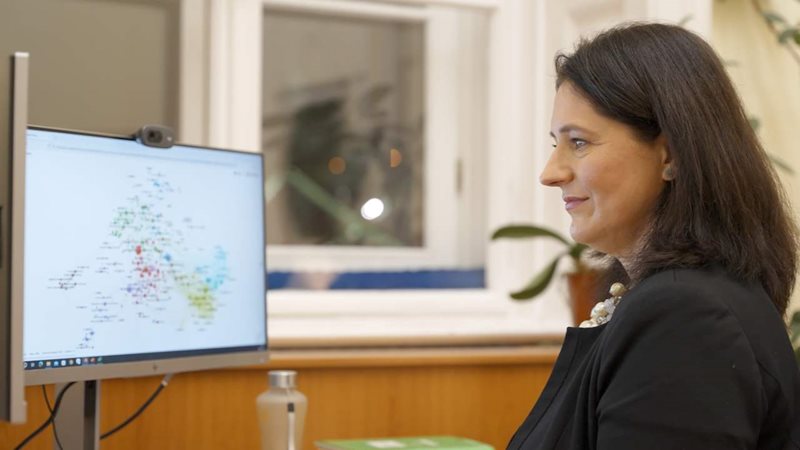From idea to implementation – this is how ERGO supports researchers
_20240112113219_0.jpg)
“I took the initiative to set up this organisational unit so that researchers could do research and not spend their time on administration,” says Tamara Keszey, Acting Vice-Rector for Research, summarising the main strength of the new organisational unit, the European Research Grant Office (ERGO), which started its operations on June 1st last year.
Dedicated to research support, including search for funding opportunities, grant administration, personalised advice in proposal preparation, grant management and research networking, the office’s aim from the outset has been to provide 360-degree support to colleagues in international grant applications and implementation. Through their work, the University hopes to secure a much bigger slice of international scientific grant resources in the future.
In designing the office, Tamara Keszey and her colleagues looked at a number of international best practices and found that at Western European universities, which are the largest grant recipients, there is invariably a well-developed research support ecosystem to facilitate researchers’ grant activities: “in Hungary, this profession is only just beginning to become more established, but in Western European universities the importance of research management services in supporting researchers has been recognised for some time”.

THE SERVICES OF ERGO
After a year-long preparatory process, the Corvinus ERGO organisational unit was launched in June 2023 under the leadership of Judit Fekete. Currently, eight full-time colleagues and a part-time doctoral student work in the office. Among the staff are legal professionals, colleagues with previous experience in managing complex European grants, financial experts, event organisers and managerial colleagues providing professional background support. This allows the office to provide a complex, one-stop-shop service package for the faculty, as all the expertise related to the management of the entire grant lifecycle is concentrated in one place, from the search for funding opportunities to the support to proposal writing and the financial and administrative management of the projects.
ERGO staff members regularly attend institute meetings, where they present current funding opportunities that might be of interest to the lecturers and researchers of the institute. They are active participants during the University Research Week and are permanent invitees at the meetings of the Research Committee. You can also sign up for individual mini-consultations with ERGO staff members, who will provide personalised advice on grant opportunities to interested colleagues.
“It is important that ERGO staff members are directly accessible to faculty members and well-integrated into the University’s research ecosystem. It is equally important that they are active in international organisations and channel the knowledge and contacts they have acquired towards Corvinus’ research community.” – explains the Vice-Rector.
ASSESSMENT OF THE OFFICE’S SEVEN-MONTH OPERATION
During its seven months of operation, ERGO has posted over a hundred international grant-related opportunities and events on the University’s intranet page. According to Tamara Keszey, this is a particularly significant step forward in comparison to the previously sporadic grant monitoring at the University. With the help of the office’s staff members, two European Research Council Grants were submitted last year from Corvinus.
Due to the EU Council decision of 15 December 2022, Corvinus University can participate in the Horizon Europe research framework programme under limited conditions, therefore ERGO staff members started to explore further international funding opportunities as an alternative to Horizon last year. In this regard, the Vice-Rector noted that, as far as she knows, the EU decision has led to a significant drop in proposal applications at most of the model-changing universities, which is why he considers it a great achievement that the number of proposals submitted at Corvinus increased last year. The University submitted twenty-eight international applications in 2022 and forty-five in 2023.
Last autumn, ERGO presented Corvinus’s international grant portfolio at several national and international professional conferences, and the Vice-Rector said that they would like to further strengthen the international embeddedness of the office’s staff members. This year’s big innovation will be a competency map available on the university website. It will allow protentional national and international partners interested in the University’s scientific activities to search for researchers by research area. Tamara Keszey expects this to both strengthen joint research collaborations within the institution and allow ERGO staff members to monitor calls for proposals in a personalised way: “thanks to this database, research managers will be able to notify faculty members when they see an international grant opportunity that matches their topic”.